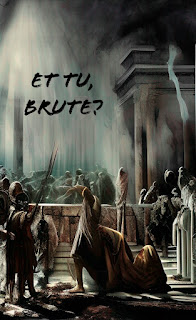Of Freonds and Feonds
- Get link
- X
- Other Apps
Friends and fiends, friends and enemies. The wordplay is fascinating in Old English. The friend is free, compelled, bound by love while the fiend, the enemy, is captive, burdened, consumed by not-love.
Scottish philosopher Thomas Carlyle wrote of his fellow Scot, the poet Thomas Campbell, “I could have loved him, but he seemed to have forgotten how to love." Friendship is unconditional and is frequently tested by loyalty. When you make a mistake, large or small, the one(s) who remain are friends. Be not surprised when there are few. “A friend lives at all times but a brother is born for adversity.” (Proverbs 17:17)
Friends check in on one another asking, “how’s your soul?” Seneca wrote to Lucillus, “if you consider any man a friend whom you do not trust as you trust yourself, you are mightily mistaken and you do not sufficiently understand what true friendship means.” (Letter 3, On Friendship).
“False friendship is the worst. Avoid it at all costs. If you’re honest and straightforward and mean well, it should show in your eyes. It should be unmistakable.” (Marcus Aurelius, “Meditations”, 11.15)
- Get link
- X
- Other Apps


